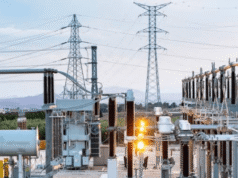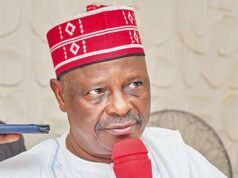In a powerful move toward bolstering Nigeria’s digital sovereignty, the Federal Government has announced plans to leverage the newly unveiled Dabengwa Sifiso Data Centre, marking a significant milestone in its data autonomy agenda. Named in honour of the late MTN Group CEO Sifiso Dabengwa, this facility in Ikeja, Lagos, symbolises Nigeria’s ambition to reclaim control over its digital destiny.
Table of Contents
A Centre for National Digital Independence
The Dabengwa Sifiso Data Centre—often simply called the Dabengwa Data Centre—is not just Nigeria’s largest prefabricated modular hub; it’s an emblem of digital self-determination. Built in two phases, Phase 1 has just become operational with a 4.5 MW capacity across 780 racks and three floors. Phase 2, expected to bring the total capacity to 9 MW and elevate the facility to Tier‑IV standards, will further fortify its resilience and redundancy.
By hosting critical data within national borders, the centre directly supports the Federal Government’s mission on data autonomy—a move intended to reduce reliance on foreign hyperscalers and preserve sensitive information in compliance with the Nigeria Data Protection Act (NDPA).

Strategic Government-Private Sector Synergy
At the unveiling, Nigeria’s Minister of Communications, Innovation and Digital Economy, Dr Bosun Tijani, described the centre as “a bold contribution” to national infrastructure, noting how it complements the government’s fiber and rural broadband initiatives, including the 90,000 km fibre rollout and the 7,000 base stations for the 3MTT programme.
Governor Babajide Sanwo-Olu, represented at the event, hailed the centre as a keystone in Lagos’ digital transformation, reinforcing the city’s reputation as a regional tech hub and drawing worldwide investment. Indeed, industry experts describe it as a textbook example of how public–private collaboration can accelerate nation-building in the digital era.
Building the Backbone of the Digital Economy
MTN Nigeria CEO Dr Karl Toriola emphasised how the centre serves as both a springboard and a magnet for innovation. With a pay-as-you-use pricing model—billed in naira—it caters to startups, small businesses, and large enterprises alike, offering them cost-effective, local cloud computing services.
Initial investment for Phase 1 is estimated between $100 million and $150 million, with cloud integration components adding approximately $20 million. The rollout not only disrupts the flow of roughly $350 million annually spent on overseas cloud hosting but also enhances performance and service delivery speed for Nigerian users.
Powering AI, Cloud, and Enterprise Solutions
Ranking Nigeria’s largest prefabricated modular data centre and West Africa’s most capacious yet, the centre supports AI, cloud-based workloads, and hyperscale applications. It’s built to rival global players like AWS and Azure, with MTN introducing self-service orchestration via its MTN Cloud platform—a clear signal that local talent and businesses can now deploy AI/ML and enterprise solutions domestically.
Safeguarding Security and Sovereignty
One of the government’s chief objectives—digital sovereignty—is firmly tied to controlling where data resides. The data centre’s compliance with NDPA, close coordination with the Nigeria Data Protection Commission (NDPC), and localised billing underscore this commitment.
By curbing exposure to geopolitical risks and undersea-cable failures—as seen in West Africa in 2024—the facility significantly strengthens national cyber resilience.
Economic Ripple Effects and National Ambition
Strategically, the data centre aligns with President Tinubu’s vision of a $1 trillion economy. The Minister of Communications and Digital Economy described it as essential for positioning Nigeria as West Africa’s digital backbone and for unlocking youth-led tech enterprises with global reach.
Lagos alone now hosts 14 data centres, trailing only Johannesburg and Nairobi on the continent—an indicator of burgeoning capacity. Industry projections estimate Nigeria’s data centre market at $278 million in 2024, with forecasts predicting a surge to $671 million by 2030 as capacity expands to 279.4 MW.
Modular Design and Future‑Ready Scalability
Spanning three floors and modular in both power and cooling, the facility comprises 96 containerised units and roughly 1,500 rack slots—primed for flexible expansion. The upcoming Tier-IV upgrade will further buttress uptime and failover capabilities, critical for mission‑critical governmental and enterprise workloads.

Pioneering a Broader Cloud Ecosystem
By enabling startups and SMEs to provision infrastructure “like AWS or Google Cloud” at local rates, the centre is cultivating a thriving ecosystem in sectors like fintech, healthcare, and agriculture. It’s not just a tech hub—it’s a launchpad for innovation, confidence, and regulation-aligned growth.
Furthermore, diplomatic engagement—like Google’s pledge to partner with local data centres and align with FG’s best practices—creates a blueprint for future hyperscaler integration.
A Landmark for Digital Independence
The Dabengwa Sifiso Data Centre transcends traditional infrastructure projects. It is a symbolic and operational coup for Nigeria’s sovereignty, cybersecurity, and technological competitiveness.
By centring on the “Data autonomy FG Sifiso Dabengwa Data Centre” strategy, the Federal Government has crafted a formidable pillar within its national digital architecture. As Phase 2 progresses and Tier-IV standards are achieved, Nigeria is on track to not only claim a leading position in West Africa but also to champion its own digital independence for generations to come.
In summary, the Dabengwa Data Centre is set to power Nigeria’s digital transition. It advances critical national objectives: reducing data flight, fortifying sovereignty, catalysing AI/Cloud adoption, and stimulating economic value. With strategic collaboration, forward-thinking policy, and significant investment, this is a defining moment in West Africa’s digital story.
Join Our Social Media Channels:
WhatsApp: NaijaEyes
Facebook: NaijaEyes
Twitter: NaijaEyes
Instagram: NaijaEyes
TikTok: NaijaEyes





